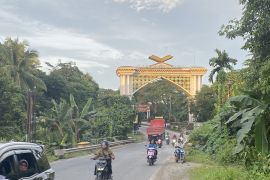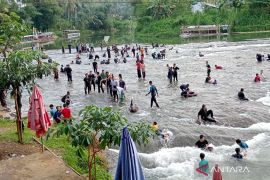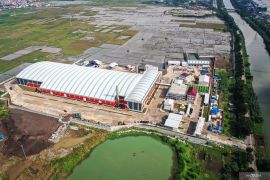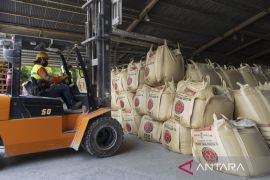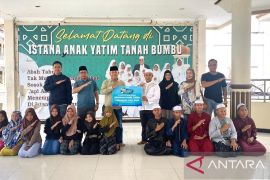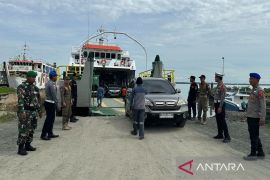Jakarta (ANTARA) - The Maritime Affairs and Fisheries (KKP) Ministry intends to restore and rehabilitate six mangrove regions as part of its endeavors to assist Indonesia's economic recovery.
Acting Director-General of Ocean Management at the KKP Ministry Hendra Yusran Siry stated here on Tuesday that the rehabilitation would be conducted in the districts of Pemalang, Sumenep, Pamekasan, Situbondo, Probolinggo, and Kebumen with the planting area totaling 223 hectares.
He explained that these regions in Java were selected for rehabilitation since mangrove ecosystem recovery was part of the National Economic Recovery (PEN) Program.
Siry elucidated that most of the coastal and oceanic regions were in a degraded condition on account of environmentally detrimental activities being conducted.
"Several activities on land and in the ocean also contribute to the declining state of the mangrove ecosystem," the director-general pointed out.
To this end, he highlighted that one of the methods adopted by KKP was to rehabilitate these regions along with the locals.
Related news: BRGM to reforest West Kalimantan's 6,000-hectare mangrove forests
Siry elaborated that coastal areas and small islands can be rehabilitated through activities, such as mangrove ecosystem recovery, raising the residents' awareness of the importance of protecting the coastal region, strengthening the institutional and human resource capacity, and boosting the residents' role in rehabilitating the environment that had impacted their prosperity.
Meanwhile, Director of Coastal and Small Islands Utilization Muhammad Yusuf highlighted the ministry's target to plant 400 hectares of mangroves in 2021 in line with the National Mid-term Development Plan (RPJMN) 2020-2024.
"According to the KKP data, the mangrove area in Indonesia has reached 3.49 million hectares comprising 2.17 million hectares of forest region and 1.32 million hectares of non-forest region. Mangrove planting is expected to reach 1,800 hectares until 2024," Yusuf stated.
Related news: Riau Islands: BRGM aims to restore 4,617 ha of mangroves



